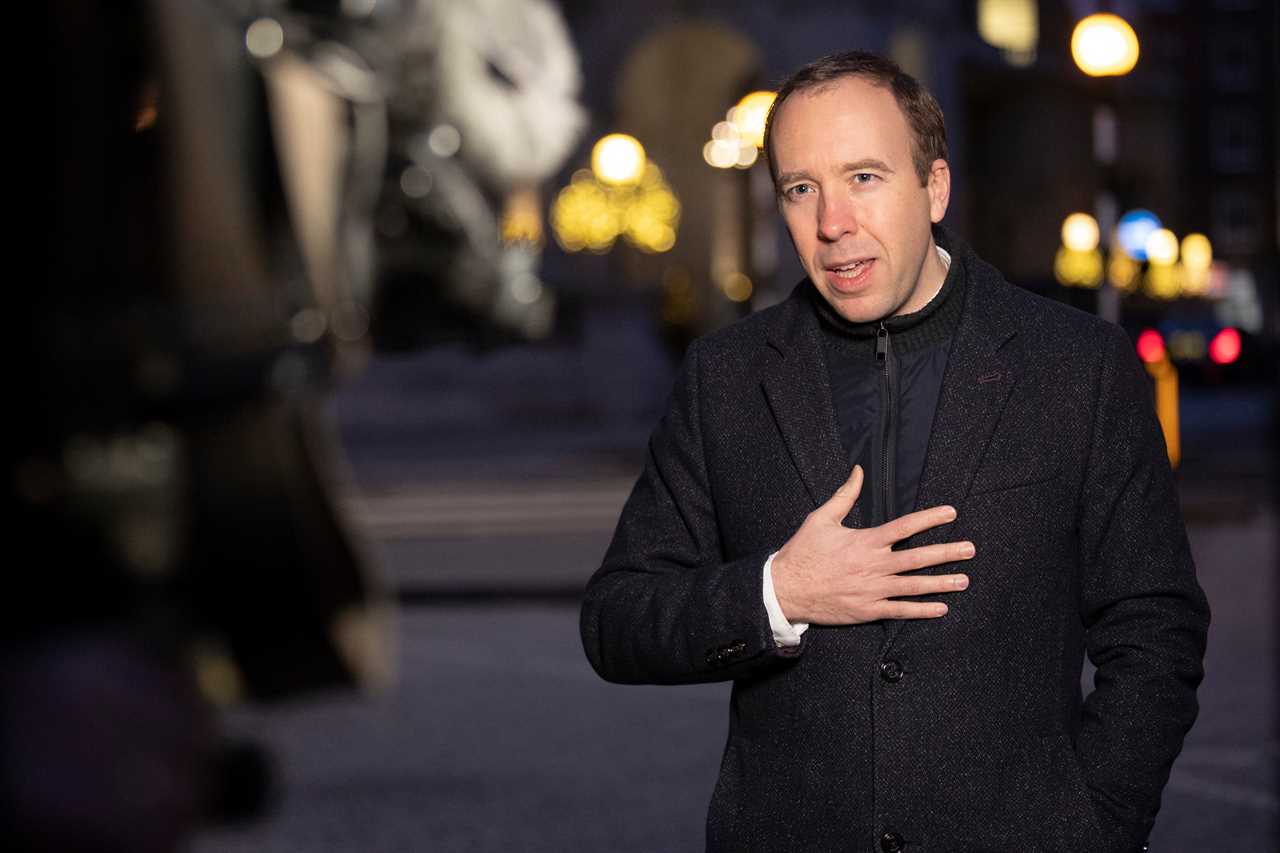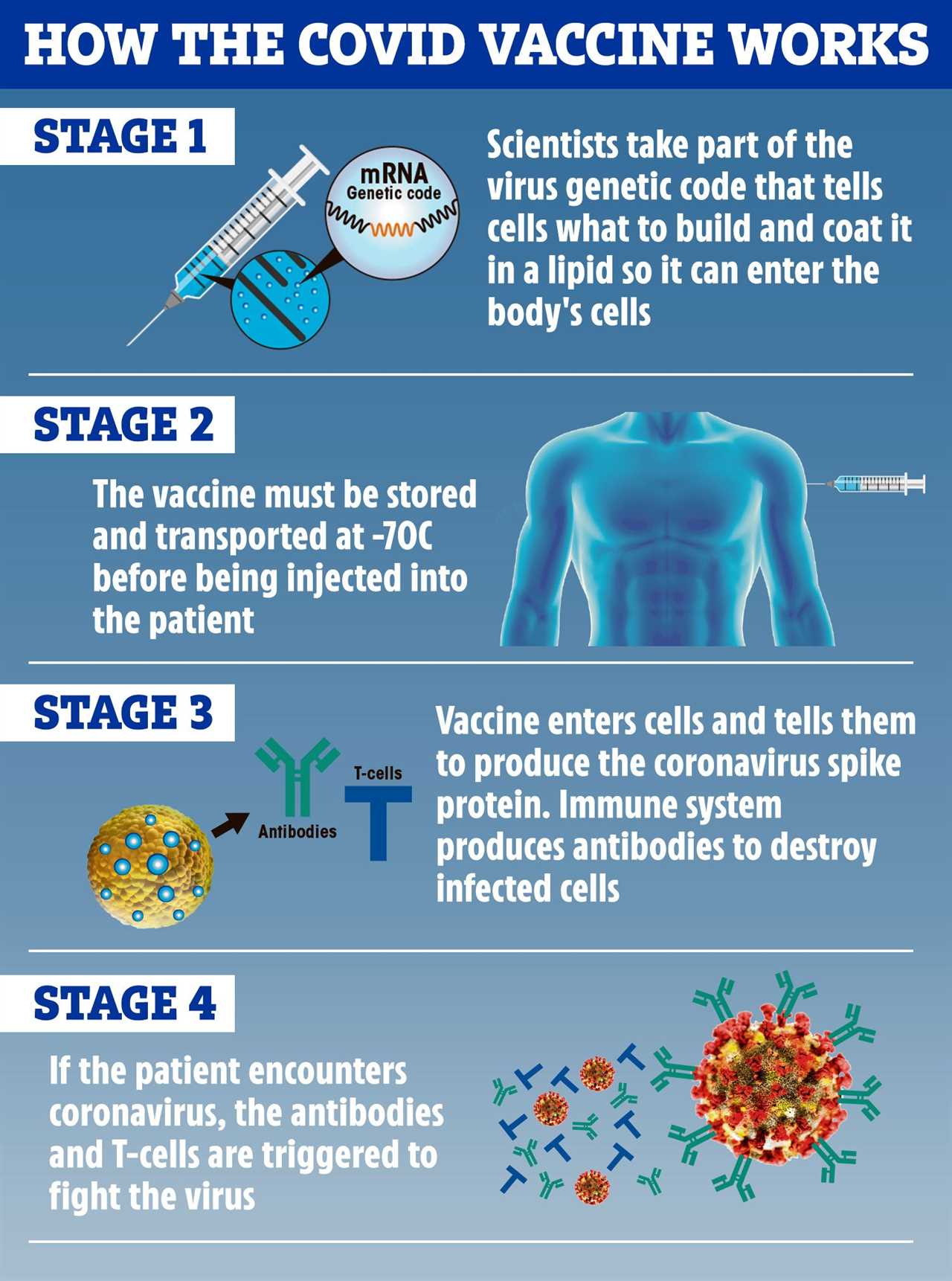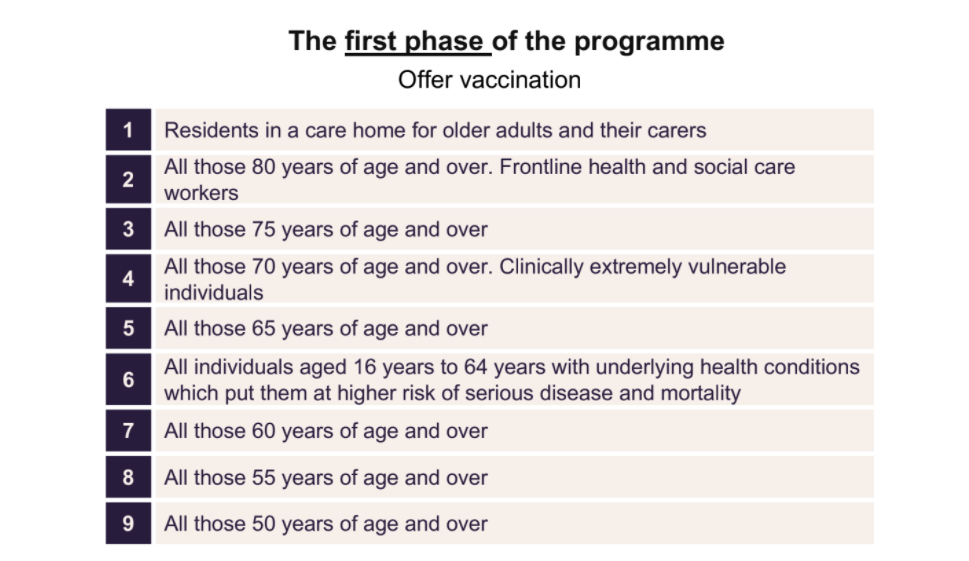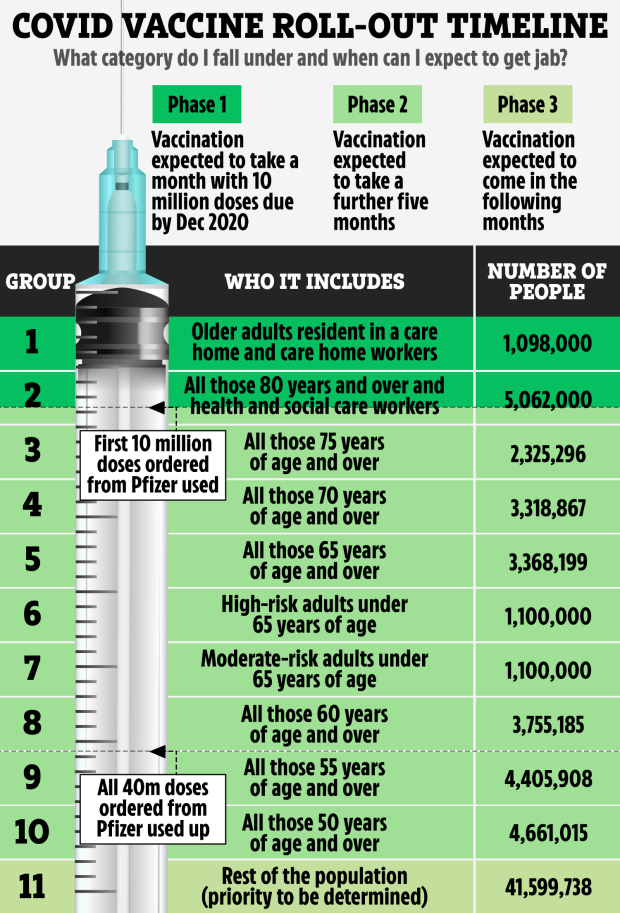BREXIT helped the UK become the first country in the world to approve the vaccine, Matt Hancock declared today.
The Health Secretary said breaking free of the European Medicines Agency meant that the UK were able to make their own checks and decisions independently of their agencies.


Today it was confirmed that the Pfizer vaccine is the first to get the green light from the UK’s regulators, and will be rolled out to the first people from next week.
800,000 will be released to begin with, and millions before the end of the month.
The jab – which is 95 per cent effective and developed by pharmaceutical giant Pfizer and German firm BioNTech – is safe for use, health regulators say.
There are two others which are being reviewed at the moment, too.
Mr Hancock told Times Radio we have been able to “speed things up” faster outside of the EU.
He explained: “And the reason we’ve been able to move this fast, and the UK is the first country in the world to have a clinically authorised vaccine, the reason is twofold.
“Firstly, because the MRHA has done a great job of working with the company to look at that data as it’s come through and do things in parallel, rather than one after the other as they normally would, that’s the first reason.
“The second reason is because, whilst until earlier this year we were in the European Medicines Agency (EMA), because of Brexit we’ve been able to make a decision to do this based on the UK regulator, a world-class regulator, and not go at the pace of the Europeans, who are moving a little bit more slowly.
“We do all the same safety checks and the same processes, but we have been able to speed up how they’re done because of Brexit.”
The news came as:
- Boris Johnson will give a press conference tonight on the vaccine news
- England’s second national lockdown ended today, plunging the nation into harsher restrictions – but opening shops, gyms and leisure centres
- 50 NHS hospitals will be ready to deliver the jab from next week
- Care home residents, NHS staff and the elderly will be among the first to receive drug
- UK has secured 40 million doses of the Pfizer/BioNTech vaccine – enough to vaccinate 20 million people – with 10 million doses due in the UK by the end of the year
- The Nightingale hospitals, along with football clubs, race-courses and tennis courts, will be transformed into mass-vaccine centres
- A scientist warned it may take six months to get everyone vaccinated
- Only people over 16 will get the vaccine
- Older adults in care homes and their carers will get the vaccine first
- Mr Hancock and Piers Morgan both vowed to get the jab live on air to show it’s safe
Mr Hancock said this morning: “I am absolutely thrilled the UK is the first country in the world to have a clinically authorised vaccine for Covid-19.
“We now know that help is on its way – 2021 is going to be better.”
He told Sky News: “We can see that by the spring we’re going to be through this.”
Mr Hancock said the bulk of the rollout will come in the new year, adding: “We haven’t put a finger on the numbers before Christmas.”
He told the BBC: “But what we do know is that we can get started next week with that first load and then several millions will be coming throughout December.

“People will be contacted by the NHS when it’s their turn and I urge you very strongly to come forward because obviously being vaccinated is good for you, it’s approved as clinically safe by the regulator and it’s good for your community as well to help get this virus under control once and for all.
“I’m confident now with the news today that from spring, from Easter onwards, things are going to be better and we’re going to have a summer next year that everybody can enjoy.”
The vaccine requires two doses, 21 days apart, and has to be kept at a very low temperature, restricting some of where it can go immediately.
It has to be stored at -70C and can only be thawed in batches of 1,000 before immunisation.
Ministers are also primed to launch a nationwide campaign across TV and radio highlighting the benefits of vaccination as early as next week.
Northern Ireland First Minister Arlene Foster said the vaccine approval is an early “Christmas present”.







